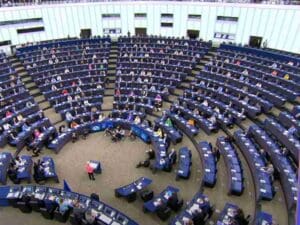
Failure to smarten the grid with digital technologies could cost nearly three-quarters of the savings projected by doing so, the International Energy Agency (IEA) has estimated.
While the drive for smarter grids, initially led in North America and Europe, has expanded across the world, it has lagged in many emerging markets and developing economies as other challenges such as meeting growing demand with limited resources and ageing infrastructure have taken priority.
But a new report from IEA’s Digital Demand-Driven Electricity Networks Initiative (3DEN) suggests that digital technologies need a higher priority in these countries, with delays in their implementation having considerable costs.
According to the study, digital technologies could save $1.8 trillion of grid investment globally through 2050 by extending the lifetime of grids, while also helping to integrate renewables and minimise supply interruptions.
Have you read?
‘Network planning needs to be ahead of the curve’ – IEA
Smart grid drivers in Latin America
However, failing to upgrade and digitalise network infrastructure properly could cut the economic output in emerging and developing countries by almost $1.3 trillion as reduced productivity, lost sales and wasteful outlays on backup generation push up costs and put net-zero targets at risk.
“Power grids are among the unsung heroes of the energy transition, but they need massive investment,” says IEA Executive Director Fatih Birol.
“While much attention goes to solar panels and electric vehicles, it is grids that connect everything together. By digitalising our grids, our power systems become more reliable and secure and our utilities can better manage the balance of electricity supply and demand. The longer we wait to upgrade and digitalise our grids, the more expensive it will get.”
Digitalisation of the grids
The report highlights the need for digitalisation of the grids as crucial for efficiency and decarbonisation and as one of the keys to the success of the clean energy transition.
For example, the IEA estimates that digitally enabled demand response could reduce the curtailment of variable renewable energy systems by more than 25% by 2030, thereby increasing system efficiency and reducing costs for customers.
Decarbonisation can be further supported through enhanced supply and demand forecasting, enabling integrated energy planning and providing better visibility and greater electricity demand flexibility.
Other roles for digitally enabled technologies highlighted include managing the growing penetration of distributed PV systems – countries such as Brazil, India and South Africa are seeing rapid uptake, for example – expanding clean energy access in remote communities and enabling better management of the growing demand due to end-use electrification.
The report notes that overall current global investment in grids is far short of what is required for net zero emissions by mid-century. Annual investment will need to more than double to around $750 billion by 2030, from around US$320 billion today, the IEA estimates.
Policies to support smart grid implementation
The IEA suggests five policy areas beyond targeted actions to facilitate investments to support smart grid implementation and continuous improvement in emerging markets and developing economy countries.
These are:
● Create a coherent vision of how digital grid technologies can help meet country priorities and modernise planning with updated policy and regulatory frameworks.
● Co-ordinate implementation across government departments, regulators and the digital and electricity industries.
● Facilitate rules and regulations that adequately value digital solutions and incentivise and de-risk digitalisation investments.
● Integrate resiliency and security across all electricity policy domains, including through long-term planning and for example climate strategies.
● Track, evaluate and disseminate digitalisation progress to ensure policy implementation and knowledge sharing.








